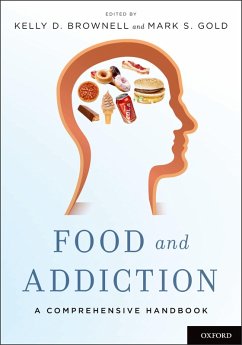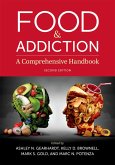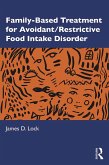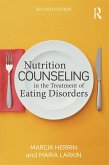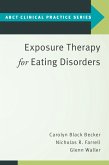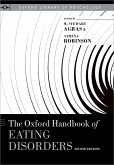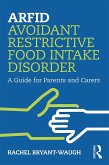Food and Addiction (eBook, PDF)
A Comprehensive Handbook
Redaktion: Brownell, Kelly D.; Gold, Mark S.


Alle Infos zum eBook verschenken

Food and Addiction (eBook, PDF)
A Comprehensive Handbook
Redaktion: Brownell, Kelly D.; Gold, Mark S.
- Format: PDF
- Merkliste
- Auf die Merkliste
- Bewerten Bewerten
- Teilen
- Produkt teilen
- Produkterinnerung
- Produkterinnerung

Hier können Sie sich einloggen

Bitte loggen Sie sich zunächst in Ihr Kundenkonto ein oder registrieren Sie sich bei bücher.de, um das eBook-Abo tolino select nutzen zu können.
Can certain foods hijack the brain in ways similar to drugs and alcohol, and is this effect sufficiently strong to contribute to major diseases such as obesity, diabetes, and heart disease, and hence constitute a public health menace? Terms like "chocoholic" and "food addict" are part of popular lore, some popular diet books discuss the concept of addiction, and there are food addiction programs with names like Food Addicts in Recovery Anonymous. Clinicians who work with patients often hear the language of addiction when individuals speak of irresistible cravings, withdrawal symptoms when…mehr
- Geräte: PC
- mit Kopierschutz
- eBook Hilfe
- Größe: 4.68MB
![Food & Addiction (eBook, PDF) Food & Addiction (eBook, PDF)]() Food & Addiction (eBook, PDF)62,95 €
Food & Addiction (eBook, PDF)62,95 €![Family-Based Treatment for Avoidant/Restrictive Food Intake Disorder (eBook, PDF) Family-Based Treatment for Avoidant/Restrictive Food Intake Disorder (eBook, PDF)]() James D. LockFamily-Based Treatment for Avoidant/Restrictive Food Intake Disorder (eBook, PDF)33,95 €
James D. LockFamily-Based Treatment for Avoidant/Restrictive Food Intake Disorder (eBook, PDF)33,95 €![Nutrition Counseling in the Treatment of Eating Disorders (eBook, PDF) Nutrition Counseling in the Treatment of Eating Disorders (eBook, PDF)]() Marcia HerrinNutrition Counseling in the Treatment of Eating Disorders (eBook, PDF)62,95 €
Marcia HerrinNutrition Counseling in the Treatment of Eating Disorders (eBook, PDF)62,95 €![Hunger for Connection (eBook, PDF) Hunger for Connection (eBook, PDF)]() Alitta KullmanHunger for Connection (eBook, PDF)22,95 €
Alitta KullmanHunger for Connection (eBook, PDF)22,95 €![Exposure Therapy for Eating Disorders (eBook, PDF) Exposure Therapy for Eating Disorders (eBook, PDF)]() Carolyn Black BeckerExposure Therapy for Eating Disorders (eBook, PDF)31,95 €
Carolyn Black BeckerExposure Therapy for Eating Disorders (eBook, PDF)31,95 €![The Oxford Handbook of Eating Disorders (eBook, PDF) The Oxford Handbook of Eating Disorders (eBook, PDF)]() The Oxford Handbook of Eating Disorders (eBook, PDF)126,95 €
The Oxford Handbook of Eating Disorders (eBook, PDF)126,95 €![ARFID Avoidant Restrictive Food Intake Disorder (eBook, PDF) ARFID Avoidant Restrictive Food Intake Disorder (eBook, PDF)]() Rachel Bryant-WaughARFID Avoidant Restrictive Food Intake Disorder (eBook, PDF)20,95 €
Rachel Bryant-WaughARFID Avoidant Restrictive Food Intake Disorder (eBook, PDF)20,95 €-
-
-
Dieser Download kann aus rechtlichen Gründen nur mit Rechnungsadresse in A, B, BG, CY, CZ, D, DK, EW, E, FIN, F, GR, HR, H, IRL, I, LT, L, LR, M, NL, PL, P, R, S, SLO, SK ausgeliefert werden.
- Produktdetails
- Verlag: OUP eBook
- Erscheinungstermin: 2. August 2012
- Englisch
- ISBN-13: 9780199908219
- Artikelnr.: 38149792
- Verlag: OUP eBook
- Erscheinungstermin: 2. August 2012
- Englisch
- ISBN-13: 9780199908219
- Artikelnr.: 38149792
- Herstellerkennzeichnung Die Herstellerinformationen sind derzeit nicht verfügbar.
* Introduction
* Food and Addiction: Why and Why Now?
* Kelly D. Brownell and Mark S. Gold
* Part 1: The Neurobiology and Psychology of Addiction
* 1. Animal Models of Drug Addiction
* George F. Koob
* 2. Human Laboratory Models of Addiction
* Barbara J. Mason and Amanda E. Higley
* 3. Neuroanatomy of Addiction
* George F. Koob
* 4. Genetics of Addiction
* Ernest P. Noble
* 5. Epigenetic Changes in Addiction and Eating Disorders
* Firas H. Kobeissy, Mahdi Razafsha, Zhiqun Zhang and Mark S. Gold
* 6. Feeding Systems and Drugs of Abuse
* Brittany L. Mason, Eric J. Nestler and Michael Lutter
* 7. Co-occurring Addiction and Psychiatric Disorders
* Shelly F. Greenfield and Michele A. Crisafulli
* 8. The Study of Craving and its Role in Addiction
* Peter M. Monti and Lara A.Ray
* 9. Stress and Addiction: A Brief Overview
* Rajita Sinha
* Part 2: Regulation of Eating and Body Weight
* 10. The Changing Face of Global Diet and Nutrition
* Barry M. Popkin
* 11. Weight and Diet among Children and Adolescents in the United
States, 2005-2008
* Cynthia L. Ogden, Molly M. Lamb, Brian K. Kit and Jacqueline D.
Wright
* 12. Genetics of Body Weight Regulation
* Wendy K. Chung and Rudolph L. Leibel
* 13. Central Regulation of Hunger, Satiety, and Body Weight
* Hans-Rudolf Berthoud
* 14. Peripheral Regulation of Hunger and Satiety
* Gary J. Schwartz
* 15. Food Intake and Metabolism
* Douglas S. Ramsay and Stephen C. Woods
* 16. Neuroendocrine Regulation of Energy Balance
* Marcelo O. Dietrich and Tamas Horvath
* 17. Prenatal Programming of Obesity: Role of Macronutrient-Specific
Peptide Systems
* Irene Morganstern, Jessica R. Barson and Sarah F. Leibowitz
* 18. The Biology and Psychology of Taste
* Linda M. Bartoshuk and Derek J. Snyder
* 19. Leptin Gene Therapy for Hyperphagia, Obesity, Metabolic Diseases
and Addiction: A New Opportunity
* Satya P. Kalra
* 20. Lessons from Prader-Willi Syndrome and Pathological Brain
Reinforcement
* Yijun Liu and Yi Zhang
* 21. Environmental Toxins as Triggers for Obesity
* Angelo Tremblay and Marina Sánchez
* 22. The Special Case of Sugar Sweetened Beverages
* Cara B. Ebbeling, Walter C. Willett and David S. Ludwig
* 23. The Impact of Portion Size and Energy Density on Eating
* Barbara J. Rolls
* 24. Specific Environmental Drivers of Eating
* Brian Wansink
* Part 3: Research on Food and Addiction
* 25. Food Addiction and Diagnostic Criteria for Dependence
* Ashley N. Gearhardt and William R. Corbin
* 26. Phylogenetic and Ontogenetic Contributions to Today's Obesity
Quagmire
* Elliott M. Blass
* 27. Food Reward
* Dana M. Small
* 28. Dopamine Deficiency, Eating and Body Weight
* Gene-Jack Wang, Nora D. Volkow and Joanna S. Folwer
* 29. Genes and Reward Circuitry as Predictors of Eating and Weight
Gain
* Sonja Yokum and Eric Stice
* 30. Hormones, Hunger and Food Addiction
* Alain Dagher
* 31. Bingeing, Withdrawal, and Craving: An Animal Model of Sugar
Addiction
* Nicole M. Avena and Bartley G. Hoebel
* 32. Incubation of Sucrose Craving in Animal Models
* Jeffrey W. Grimm
* 33. "Liking" vs. "Wanting" Food in Human Appetite: Relation to
Craving, Overconsumption and "Food Addiction"
* Graham Finlayson, Michelle Dalton and John E. Blundell
* 34. The Psychology of Food Cravings
* Andrew J. Hill
* 35. Is Sugar as Addictive as Cocaine?
* Serge H. Ahmed
* 36. Caffeine, Addiction, and Food Consumption
* Daniel P. Evatt and Roland R. Griffiths
* 37. Interactions between Smoking, Eating, and Body Weight
* Stephanie S. O'Malley
* 38. Interactions between Alcohol Consumption, Eating, and Weight
* Ashley N. Gearhardt and William R. Corbin
* 39. Relationships Between Drugs of Abuse and Eating
* Daniel M. Blumenthal and Mark S. Gold
* 40. Stress and Reward: Neural Networks, Eating, and Obesity
* Elissa S. Epel, A. Janet Tomiyama and Mary F. Dallman
* 41. Public Attitudes About Addiction as a Cause of Obesity
* Colleen L. Barry
* Part 4: Clinical Approaches and Implications
* 42. Clinical Assessment of Food and Addiction
* Ashley N. Gearhardt and William R. Corbin
* 43. Psychological Treatments for Substance Use Disorders
* Lisa J. Merlo
* 44. Behavioral Treatments for Obesity
* Caitlin A. LaGrotte and Gary D. Foster
* 45. Pharmacotherapy of addictive disorders
* Ece Tek and Stephanie S. O'Malley
* 46. Pharmacotherapy for Obesity: Current and Future Treatments
* Orli Rosen and Louis J. Aronne
* 47. Surgical Treatments for Obesity
* Marion L. Vetter, Lucy F. Hemsley-Faulconbridge, Noel N. Williams and
Thomas A. Wadden
* 48. Treatment of Alcohol and Drug Dependence in 2011 and Relevance to
Food Addiction
* Kimberly Blumenthal, Robert DuPont and Mark. S. Gold
* 49. Treatment of Binge Eating Disorder
* Carlos M. Grilo
* 50. Exercise Addiction and Aversion: Implications for Eating and
Obesity
* David M. Williams and Bess H. Marcus
* 51. New Treatments for Obesity Based on Addiction Models
* Richard L. Shriner
* 52. From the Front Lines: The Impact of Refined Food Addiction on
Well-Being
* Joan Ifland, Kay Sheppard and H. Theresa Wright
* 53. From the Front Lines: A Clinical Approach to Food and Addiction
* Philip Werdell
* 54. From the Front Lines: Food and Addiction: A Personal Story
* Anne Rosenberg
* Part 5: Public Health Approaches and Implications
* 55. Taxes on Energy Dense Foods to Improve Nutrition and Prevent
Obesity
* John Cawley
* 56. Addressing Disparities Related to Food Intake and Obesity
* Shiriki Kumanyika
* 57. Is Food Advertising Feeding Americans' Sugar Habit? An Analysis
of Exposure to Television Advertising for High-Sugar Foods
* Jennifer L Harris
* 58. Environmental Interventions to Reduce Overeating in Children
* Thomas N. Robinson and Donna M. Matheson
* 59. Nutrition Practices in Schools
* Marlene B. Schwartz and Nicole L. Novak
* Part 6: Legal and Policy Implications
* 60. Legal and Policy Implications: Litigation
* Stephen P. Teret and Lainie Rutkow
* 61. Legal Implications: Regulating Sales and Marketing
* Jennifer L. Pomeranz
* 62. What Lessons for Food Policy Can Be Learned from Alcohol Control?
* Ian Gilmore and Karishma Chandaria
* 63. Policy Lessons Learned from Tobacco
* Kenneth E. Warner
* 64. Lessons from Drug Policy
* Robert L. DuPont
* 65. Global Policies Affecting Diet and Obesity
* Tim Lobstein
* Part 7: Concluding Comments
* 66. Food and Addiction: Scientific, Social, Legal, and Legislative
Implications
* Kelly D. Brownell and Mark S. Gold
* Introduction
* Food and Addiction: Why and Why Now?
* Kelly D. Brownell and Mark S. Gold
* Part 1: The Neurobiology and Psychology of Addiction
* 1. Animal Models of Drug Addiction
* George F. Koob
* 2. Human Laboratory Models of Addiction
* Barbara J. Mason and Amanda E. Higley
* 3. Neuroanatomy of Addiction
* George F. Koob
* 4. Genetics of Addiction
* Ernest P. Noble
* 5. Epigenetic Changes in Addiction and Eating Disorders
* Firas H. Kobeissy, Mahdi Razafsha, Zhiqun Zhang and Mark S. Gold
* 6. Feeding Systems and Drugs of Abuse
* Brittany L. Mason, Eric J. Nestler and Michael Lutter
* 7. Co-occurring Addiction and Psychiatric Disorders
* Shelly F. Greenfield and Michele A. Crisafulli
* 8. The Study of Craving and its Role in Addiction
* Peter M. Monti and Lara A.Ray
* 9. Stress and Addiction: A Brief Overview
* Rajita Sinha
* Part 2: Regulation of Eating and Body Weight
* 10. The Changing Face of Global Diet and Nutrition
* Barry M. Popkin
* 11. Weight and Diet among Children and Adolescents in the United
States, 2005-2008
* Cynthia L. Ogden, Molly M. Lamb, Brian K. Kit and Jacqueline D.
Wright
* 12. Genetics of Body Weight Regulation
* Wendy K. Chung and Rudolph L. Leibel
* 13. Central Regulation of Hunger, Satiety, and Body Weight
* Hans-Rudolf Berthoud
* 14. Peripheral Regulation of Hunger and Satiety
* Gary J. Schwartz
* 15. Food Intake and Metabolism
* Douglas S. Ramsay and Stephen C. Woods
* 16. Neuroendocrine Regulation of Energy Balance
* Marcelo O. Dietrich and Tamas Horvath
* 17. Prenatal Programming of Obesity: Role of Macronutrient-Specific
Peptide Systems
* Irene Morganstern, Jessica R. Barson and Sarah F. Leibowitz
* 18. The Biology and Psychology of Taste
* Linda M. Bartoshuk and Derek J. Snyder
* 19. Leptin Gene Therapy for Hyperphagia, Obesity, Metabolic Diseases
and Addiction: A New Opportunity
* Satya P. Kalra
* 20. Lessons from Prader-Willi Syndrome and Pathological Brain
Reinforcement
* Yijun Liu and Yi Zhang
* 21. Environmental Toxins as Triggers for Obesity
* Angelo Tremblay and Marina Sánchez
* 22. The Special Case of Sugar Sweetened Beverages
* Cara B. Ebbeling, Walter C. Willett and David S. Ludwig
* 23. The Impact of Portion Size and Energy Density on Eating
* Barbara J. Rolls
* 24. Specific Environmental Drivers of Eating
* Brian Wansink
* Part 3: Research on Food and Addiction
* 25. Food Addiction and Diagnostic Criteria for Dependence
* Ashley N. Gearhardt and William R. Corbin
* 26. Phylogenetic and Ontogenetic Contributions to Today's Obesity
Quagmire
* Elliott M. Blass
* 27. Food Reward
* Dana M. Small
* 28. Dopamine Deficiency, Eating and Body Weight
* Gene-Jack Wang, Nora D. Volkow and Joanna S. Folwer
* 29. Genes and Reward Circuitry as Predictors of Eating and Weight
Gain
* Sonja Yokum and Eric Stice
* 30. Hormones, Hunger and Food Addiction
* Alain Dagher
* 31. Bingeing, Withdrawal, and Craving: An Animal Model of Sugar
Addiction
* Nicole M. Avena and Bartley G. Hoebel
* 32. Incubation of Sucrose Craving in Animal Models
* Jeffrey W. Grimm
* 33. "Liking" vs. "Wanting" Food in Human Appetite: Relation to
Craving, Overconsumption and "Food Addiction"
* Graham Finlayson, Michelle Dalton and John E. Blundell
* 34. The Psychology of Food Cravings
* Andrew J. Hill
* 35. Is Sugar as Addictive as Cocaine?
* Serge H. Ahmed
* 36. Caffeine, Addiction, and Food Consumption
* Daniel P. Evatt and Roland R. Griffiths
* 37. Interactions between Smoking, Eating, and Body Weight
* Stephanie S. O'Malley
* 38. Interactions between Alcohol Consumption, Eating, and Weight
* Ashley N. Gearhardt and William R. Corbin
* 39. Relationships Between Drugs of Abuse and Eating
* Daniel M. Blumenthal and Mark S. Gold
* 40. Stress and Reward: Neural Networks, Eating, and Obesity
* Elissa S. Epel, A. Janet Tomiyama and Mary F. Dallman
* 41. Public Attitudes About Addiction as a Cause of Obesity
* Colleen L. Barry
* Part 4: Clinical Approaches and Implications
* 42. Clinical Assessment of Food and Addiction
* Ashley N. Gearhardt and William R. Corbin
* 43. Psychological Treatments for Substance Use Disorders
* Lisa J. Merlo
* 44. Behavioral Treatments for Obesity
* Caitlin A. LaGrotte and Gary D. Foster
* 45. Pharmacotherapy of addictive disorders
* Ece Tek and Stephanie S. O'Malley
* 46. Pharmacotherapy for Obesity: Current and Future Treatments
* Orli Rosen and Louis J. Aronne
* 47. Surgical Treatments for Obesity
* Marion L. Vetter, Lucy F. Hemsley-Faulconbridge, Noel N. Williams and
Thomas A. Wadden
* 48. Treatment of Alcohol and Drug Dependence in 2011 and Relevance to
Food Addiction
* Kimberly Blumenthal, Robert DuPont and Mark. S. Gold
* 49. Treatment of Binge Eating Disorder
* Carlos M. Grilo
* 50. Exercise Addiction and Aversion: Implications for Eating and
Obesity
* David M. Williams and Bess H. Marcus
* 51. New Treatments for Obesity Based on Addiction Models
* Richard L. Shriner
* 52. From the Front Lines: The Impact of Refined Food Addiction on
Well-Being
* Joan Ifland, Kay Sheppard and H. Theresa Wright
* 53. From the Front Lines: A Clinical Approach to Food and Addiction
* Philip Werdell
* 54. From the Front Lines: Food and Addiction: A Personal Story
* Anne Rosenberg
* Part 5: Public Health Approaches and Implications
* 55. Taxes on Energy Dense Foods to Improve Nutrition and Prevent
Obesity
* John Cawley
* 56. Addressing Disparities Related to Food Intake and Obesity
* Shiriki Kumanyika
* 57. Is Food Advertising Feeding Americans' Sugar Habit? An Analysis
of Exposure to Television Advertising for High-Sugar Foods
* Jennifer L Harris
* 58. Environmental Interventions to Reduce Overeating in Children
* Thomas N. Robinson and Donna M. Matheson
* 59. Nutrition Practices in Schools
* Marlene B. Schwartz and Nicole L. Novak
* Part 6: Legal and Policy Implications
* 60. Legal and Policy Implications: Litigation
* Stephen P. Teret and Lainie Rutkow
* 61. Legal Implications: Regulating Sales and Marketing
* Jennifer L. Pomeranz
* 62. What Lessons for Food Policy Can Be Learned from Alcohol Control?
* Ian Gilmore and Karishma Chandaria
* 63. Policy Lessons Learned from Tobacco
* Kenneth E. Warner
* 64. Lessons from Drug Policy
* Robert L. DuPont
* 65. Global Policies Affecting Diet and Obesity
* Tim Lobstein
* Part 7: Concluding Comments
* 66. Food and Addiction: Scientific, Social, Legal, and Legislative
Implications
* Kelly D. Brownell and Mark S. Gold
